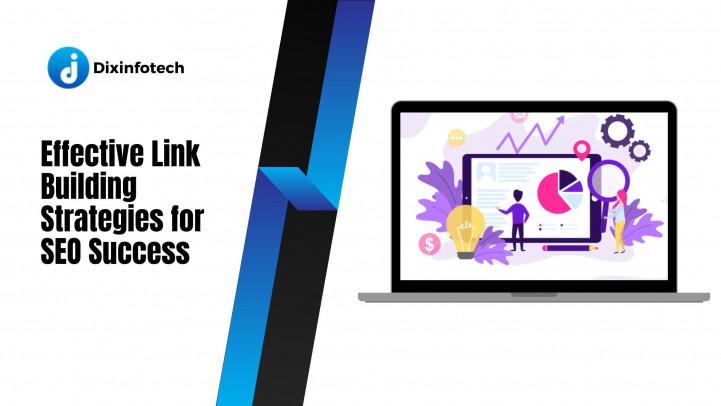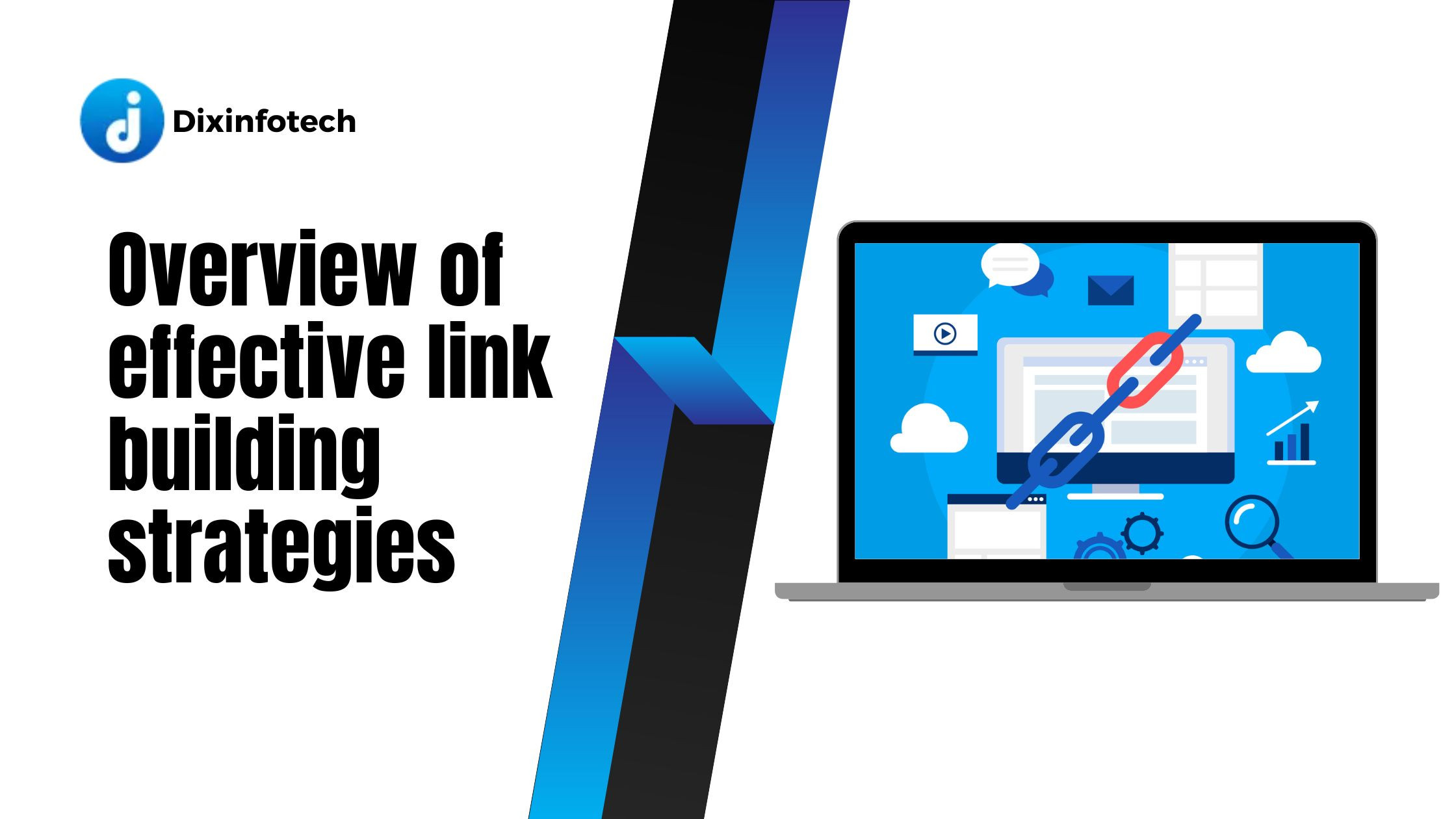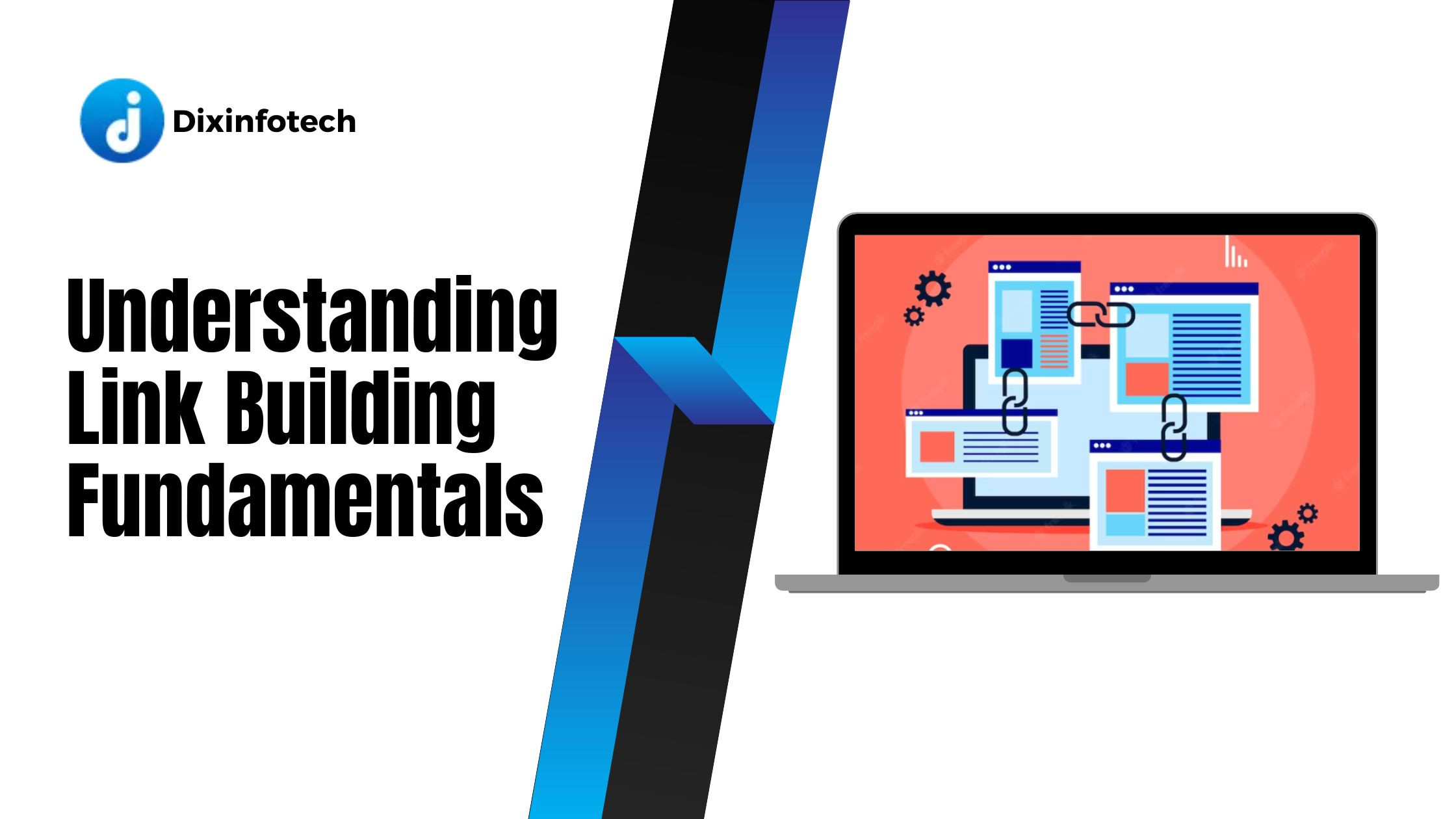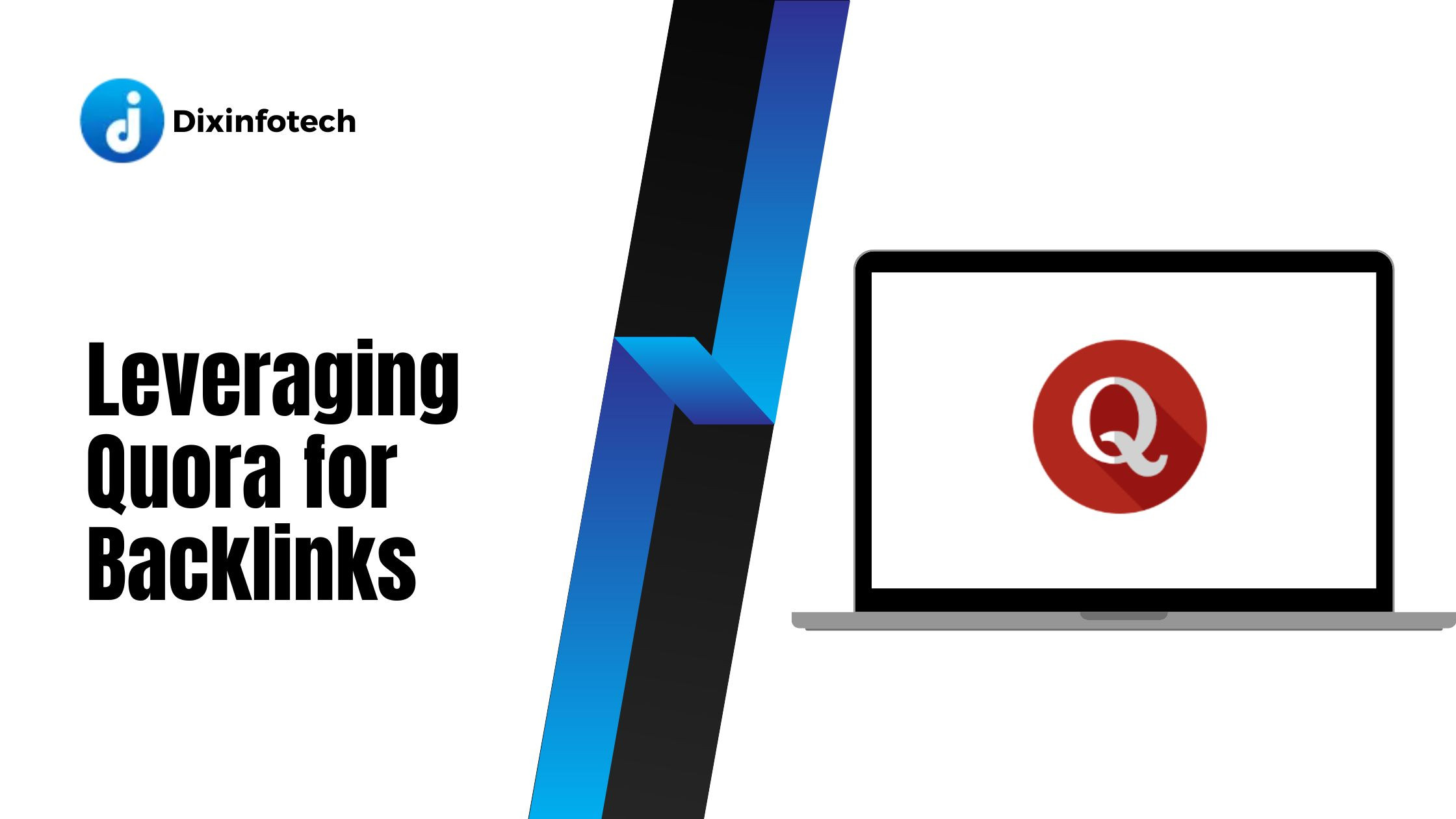
Link building is the process of getting other websites to link to yours. Quality backlinks improve your site's authority, search engine rankings, and overall visibility. It involves strategies like content creation, outreach, and relationship building within your industry. Ethical practices are crucial for long-term success.

Link building plays a crucial role in achieving SEO success. In the world of search engine optimization (SEO), link building refers to the process of acquiring external links from other websites to your own. These backlinks act as endorsements or votes of confidence for your website, indicating to search engines that your content is valuable and trustworthy. As a result, link building can significantly impact your search engine rankings, visibility, and organic traffic.
Search engines, such as Google, consider backlinks as one of the key ranking factors in their algorithms. High-quality backlinks from authoritative and relevant websites are seen as indications of quality content and expertise in a particular field. Therefore, by building a strong and diverse backlink profile, you increase your website's chances of ranking higher in search engine results pages (SERPs).

Effective link building involves implementing various strategies to acquire high-quality backlinks from reputable sources. These strategies aim to build a strong and natural link profile that enhances your website's authority and relevance in the eyes of search engines. Here are some key strategies commonly employed:
Creating High-Quality Content: Crafting valuable, informative, and shareable content attracts natural backlinks from other websites. When you produce content that is unique, well-researched, and addresses the needs of your target audience, it increases the likelihood of other websites linking to it.
Guest Blogging and Outreach: Guest blogging involves contributing content to relevant and authoritative websites within your industry. By providing valuable insights and expertise, you can earn backlinks to your website in author bios or within the content itself. Outreach involves reaching out to website owners or bloggers to request backlinks or collaborations.
Broken Link Building: This strategy involves finding broken links on relevant websites and offering alternative content or resources to replace those broken links. It provides an opportunity to earn backlinks by helping website owners fix their broken links and improve the user experience.
Social Media Promotion and Influencer Outreach: Leveraging social media platforms helps increase the visibility of your content, making it more likely to be shared and linked to by others. Additionally, collaborating with influencers and industry experts can lead to valuable backlink opportunities.
Building Relationships with Resource Pages and Directories: Identifying relevant resource pages and directories in your industry allows you to submit your website or content for inclusion. Being listed on reputable directories and resource pages enhances your website's visibility and potential for backlinks.

Link building is the process of acquiring external links from other websites to your own. These links act as endorsements, signaling to search engines the relevance, authority, and quality of your website. It involves actively seeking opportunities to earn backlinks by creating valuable content, collaborating with others, and building relationships with website owners.
When it comes to link building, quality is more important than quantity. High-quality backlinks come from authoritative and relevant websites within your industry or niche. These links carry more weight and credibility, positively impacting your website's SEO efforts. On the other hand, low-quality or spammy backlinks from irrelevant or low-authority sources can harm your SEO efforts and even lead to penalties from search engines.
Backlinks play a significant role in search engine ranking algorithms, particularly in determining the authority, relevance, and popularity of a website. Search engines consider backlinks as votes of confidence or endorsements from other websites. Websites with a strong backlink profile are seen as more trustworthy and valuable, leading to higher rankings in search results.
Backlinks contribute to the overall authority and reputation of a website, influencing its visibility and organic traffic. Search engines evaluate the quantity, quality, relevance, and diversity of backlinks when determining a website's ranking position. Websites with a diverse and natural link profile, containing backlinks from authoritative sources, are more likely to achieve higher rankings in search engine results pages (SERPs).

Creating high-quality content is essential for successful link building. Valuable and shareable content attracts natural backlinks from other websites, as they recognize the quality and usefulness of your content. When you provide information, insights, or solutions that address the needs and interests of your target audience, it increases the likelihood of others linking to your content.
Developing a content strategy focused on attracting natural backlinks involves understanding your target audience, identifying their pain points, and providing relevant and engaging content that meets their needs. By conducting thorough research and creating content that stands out in your industry, you increase the chances of earning backlinks from other websites organically.
Keyword research and optimization play a vital role in link building through content creation. By identifying relevant keywords and incorporating them strategically in your content, you improve the visibility of your content in search engine results. When your content ranks higher for relevant keywords, it increases the likelihood of attracting backlinks from websites seeking authoritative and relevant content.

Guest blogging involves contributing content to relevant and authoritative websites and blogs within your industry or niche. To identify suitable websites for guest posting, research industry-related blogs, publications, and websites that have an engaged audience and accept guest contributions. Look for platforms that align with your expertise and target audience.
Crafting compelling pitches is crucial to secure guest blogging opportunities. Personalize your pitch to each website, demonstrating your understanding of their audience and explaining how your proposed topic aligns with their content strategy. Highlight your expertise and unique perspective to showcase the value you can offer to their readership.
Building relationships with industry influencers and website owners is essential for guest blogging and link building opportunities. Engage with them on social media, share their content, and provide valuable insights to establish a connection. Collaborate on projects or offer assistance to build rapport and increase the likelihood of them linking to your content.
When creating guest posts, ensure they are of high quality to maximize their impact. Follow the guidelines provided by the host website, including word count, formatting, and style preferences. Make your content informative, well-researched, and engaging. Include relevant visuals, statistics, and examples to enhance the value of your guest post and increase its shareability.
By implementing these guest blogging and outreach strategies, you can establish valuable relationships, showcase your expertise, and earn high-quality backlinks from authoritative websites in your industry.

Quora is a popular question-and-answer platform with a large user base and a wealth of information. Leveraging Quora for backlinks offers several benefits. Firstly, Quora provides an opportunity to showcase your expertise by answering relevant questions in your industry. When you provide valuable and insightful answers, you can include backlinks to relevant content on your website, driving traffic and improving your website's visibility.
To effectively use Quora for link building, follow these steps:
To maximize the SEO impact of using Quora for backlinks, consider the following tips:
Successful Quora SEO strategies include:

Broken link building involves finding broken or dead links on relevant websites and offering alternative, working links as replacements. This strategy benefits both website owners, who can fix broken links, and link builders, who can earn valuable backlinks.
To identify broken links on relevant websites, you can use various tools such as:
Broken Link Checkers: Tools like Check My Links, Ahrefs, or Screaming Frog can crawl websites and detect broken links.
Manual Inspection: Reviewing webpages manually and checking for broken links by clicking on each link.
Once you have identified broken links, reach out to website owners or webmasters with a friendly and personalized email. Notify them about the broken link and offer your replacement content as an alternative. Explain how your content adds value and benefits their website's visitors.
Effective broken link building techniques include:

Social media platforms provide a powerful avenue for promoting your content and reaching a wider audience. Utilize platforms such as Facebook, Twitter, LinkedIn, and Instagram to share your content and engage with your target audience. By consistently sharing valuable and relevant content, you can attract attention, increase brand visibility, and encourage social sharing.
Influencers and industry experts possess a significant following and can greatly impact your link building efforts. Identify influencers and experts in your niche and engage with them through social media. Share their content, comment on their posts, and build genuine relationships. When the opportunity arises, collaborate with influencers to create valuable content or request them to share your content with their audience, potentially earning valuable backlinks.
Creating shareable content is key to harnessing the power of social media for link building. Craft content that is informative, engaging, and visually appealing. Incorporate social sharing buttons on your website to make it easy for visitors to share your content across their social networks. Additionally, encourage your audience to share your content by including calls-to-action and providing incentives for sharing, such as exclusive discounts or access to valuable resources.
Resource pages and directories offer opportunities for obtaining authoritative backlinks. Identify reputable resource pages and directories that are relevant to your industry or niche. These platforms often curate valuable resources, such as industry guides, tools, or educational materials, making them an ideal place to showcase your website and gain backlinks.
Submit your website to reputable directories and resource lists to gain exposure and acquire backlinks. Ensure that the directories you submit to have a strong reputation, are relevant to your niche, and adhere to quality guidelines. Follow the submission process and provide accurate and compelling descriptions of your website to increase the chances of inclusion.
Building relationships with website owners is crucial for future link building opportunities. Reach out to website owners of resource pages or directories and express your appreciation for being featured. Engage in conversations, offer assistance, and provide value whenever possible. By nurturing these relationships, you increase the likelihood of future link opportunities, such as guest posting, collaborative content, or shared promotions.
By implementing social media promotion and influencer outreach strategies, as well as building relationships with resource pages and directories, you can expand your online presence, foster connections within your industry, and attract valuable backlinks that contribute to your SEO success.

Optimize your local business listings and citations to improve your local SEO visibility. Ensure that your NAP (Name, Address, Phone) information is accurate and consistent across all platforms, including online directories, review sites, and social media profiles. Optimize your descriptions, categories, and images to align with local search intent and improve your chances of appearing in rxzelevant local searches.
Identify authoritative local directories specific to your industry or location. These directories play a crucial role in local SEO and can provide valuable backlinks and visibility for your business. Submit your website and business information to these directories, ensuring that you follow their guidelines and provide accurate details.
Consistency and accuracy in your NAP information across various platforms are vital for local SEO success. Ensure that your business name, address, and phone number are consistent across your website, local directories, and other online platforms. Inconsistent or outdated information can confuse search engines and potential customers, negatively impacting your local search rankings.
By effectively monitoring and analyzing backlinks, as well as optimizing local SEO and citations, you can proactively manage your backlink profile, maintain a strong online presence, and improve your website's visibility in both local and organic search results.

Utilize backlink analysis tools such as Ahrefs, Moz, or SEMrush to monitor and evaluate the quality of your backlinks. These tools provide valuable insights into the number of backlinks, referring domains, anchor text distribution, and overall link quality. Regularly analyze your backlink profile to identify any issues or opportunities for improvement.
Identify low-quality or spammy backlinks that may harm your website's SEO. If you come across backlinks from irrelevant or low-authority websites, consider disavowing them using the Google Disavow Links tool. Disavowing these links signals to search engines that you do not endorse or associate with them, helping to maintain a healthy backlink profile.
Monitor the impact of your link building efforts on search rankings. Regularly track your website's position in search engine results pages (SERPs) for targeted keywords. Analyze how your rankings improve over time as you acquire high-quality backlinks. This helps you assess the effectiveness of your link building strategies and make informed adjustments when necessary.
A: The best ways for link building in SEO include creating high-quality content that naturally attracts backlinks, guest blogging on relevant websites, leveraging social media and influencer outreach, utilizing resource pages and directories, and implementing effective outreach strategies.
A: Link building strategies include creating valuable content, guest blogging, outreach and relationship building, utilizing social media and influencers, broken link building, leveraging Q&A platforms like Quora, monitoring and analyzing backlinks, and optimizing local SEO and citations.
A: Link building is considered an effective SEO strategy because search engines view backlinks as a vote of confidence for a website's credibility and relevance. High-quality backlinks can improve a website's search rankings, drive organic traffic, and increase its visibility in search engine results pages (SERPs).
A: The link building process in SEO involves identifying link opportunities, conducting outreach to relevant websites or influencers, creating valuable content to attract backlinks, monitoring and analyzing backlinks, and continuously refining link building strategies based on the results and feedback.
A: The three types of link building are natural/organic link building, manual link building (through outreach and guest blogging), and self-created link building (such as directory submissions or forum signatures).
A: Natural/organic link building is considered the best type of link building. It involves creating valuable content that naturally attracts backlinks from other websites, indicating that the content is genuinely valuable and relevant.
A: Common tools used for link building include Ahrefs, Moz, SEMrush, Majestic, BuzzStream, Pitchbox, and Google Search Console. These tools assist in backlink analysis, competitor research, outreach management, and monitoring link performance.
A: High-quality and authoritative links from relevant and reputable websites are the most important for SEO. These links help establish a website's authority, improve search rankings, and drive targeted organic traffic.
A: In SEO, there are mainly two types of links: internal links, which connect pages within the same website, and external links, which point from one website to another.
A: The number of links needed for SEO varies depending on several factors, such as the competitiveness of the industry and the quality of the links. It is more important to focus on acquiring high-quality and relevant links rather than solely aiming for a specific number.
A: Good backlinks are high-quality links from authoritative and relevant websites. They come from trustworthy sources, are contextually relevant to the linked page, and provide genuine value to users.
A: Backlinks are the incoming hyperlinks from one website to another, while link building refers to the intentional process of acquiring these backlinks. Link building involves strategies and techniques to attract and obtain high-quality backlinks for SEO purposes.
A: Some secrets behind effective link building strategies include creating exceptional content, building genuine relationships with influencers and website owners, conducting thorough research and outreach, leveraging data and analytics to inform decision-making, and continuously adapting and refining strategies based on results and feedback.
A: The most effective way to perform link building through guest posting is by identifying relevant and authoritative websites, crafting personalized and compelling pitches, creating high-quality and valuable content, and building relationships with website owners and editors to secure guest blogging opportunities.
A: SEO agencies employ various strategies for link building, including conducting comprehensive competitor research, analyzing existing backlink profiles, developing personalized outreach campaigns, creating valuable content assets, leveraging guest blogging opportunities, utilizing social media and influencer outreach, and constantly monitoring and adapting their strategies for optimal results.
A: Do-follow backlinks are links that pass link equity from the referring website to the linked website, positively impacting its search rankings. On the other hand, no-follow backlinks contain a rel="nofollow" attribute, indicating to search engines not to transfer link authority. While no-follow backlinks don't directly impact search rankings, they can still drive traffic and provide exposure.
A: In 2024, focus on user-centric AI-driven strategies, prioritize mobile experience, create high-quality long-form content, and adapt to evolving search algorithms for optimal SEO performance.
A: Regularly update and optimize content, prioritize mobile experience, build quality backlinks, and stay informed about industry trends.
A: Optimize for voice search by using natural language, focusing on long-tail keywords, and providing concise, relevant answers.